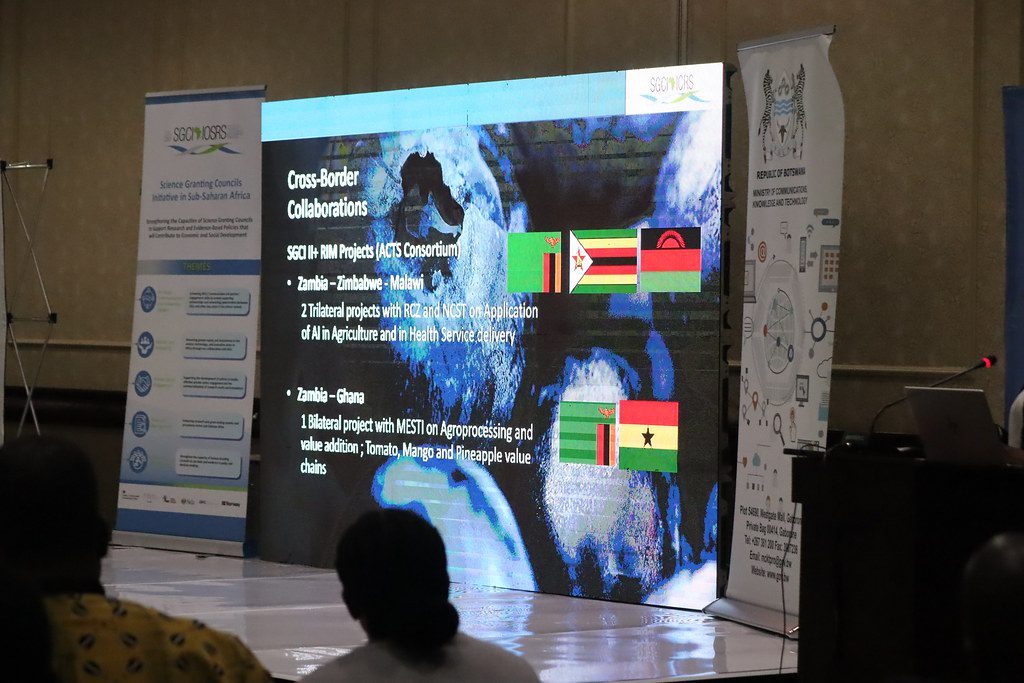SGCI News
Sparked by growing momentum in addressing gender equality and diversity in research, a new report by the Human Sciences Research Council (HSRC) explores how an intersectional approach can support gender…
Sparked by growing momentum in addressing gender equality and diversity in research, a new report by the Human Sciences Research Council (HSRC) explores how an intersectional approach can support gender transformative grant-making practices.
There has been growing awareness that addressing gender disparities in research promotes excellence and advances gender equality in society broadly. Approaches to gender transformation that consider diversity beyond gender, however, remain limited. This landmark report, funded by the NRF South Africa and the German Research Foundation (DFG) under the auspices of the SGCI, explores how an intersectional framework can support inclusive gender transformation in science, technology, and innovation (STI), with a focus on the strategic role of Science Granting Councils.
The term intersectionality has been coined to explain the ways in which social identities – such as gender, sexuality, age, race, class, and (dis)ability, amongst others – are interconnected and create unique experiences of oppression and discrimination for marginalised persons. The concept however remains poorly understood with little guidance for researchers, policymakers, implementers and funders. Dorothy Ngila, Director: Knowledge Networks and SGCI, National Research Foundation, South Africa describes how the need for a project focused on intersectionality in grant-making became clear, “we know that the researchers and postgraduate students we fund inhabit various social identities. This seminal work allows us to explore the ways we, as public funding agencies, can consider actions to support the integration of intersectionality and diversity within their research and grants management processes to support their national research enterprises.”
The report, titled Intersectionality in research, grant-making and human capital development: Considerations for public funding agencies in advancing equality, diversity and inclusion, offers practical recommendations for advancing intersectional gender transformation in STI. The report summarises key findings from a systematic review of research informed by an intersectional framework, individual interviews with subject specialists in intersectional methodologies, and a desktop review of the integration of intersectionality into African Science Granting Councils’ policies and programmes. Dr Ingrid Lynch, PI of the project, states that “a commitment to gender equality and diversity drives research excellence. The recommendations flowing from this report offer practical next steps for public funding agencies to promote inclusion and diversity in research teams, methods and policies”.
The report can be accessed here.
Related News
How Zambia’s science council is funding research that matters
When Zambia’s National Science and Technology Council (NSTC) was established in 1997, its founding vision was to harness science, technology, and innovation to improve the lives of ordinary Zambians. More than two decades later, that vision is increasingly taking shape through a growing portfolio of…
Voices of SGCI: Council leaders on the direction and ambition of SGCI 3
At the African Union’s Science, Technology and Innovation Week in Addis Ababa, earlier this month, leaders of science granting councils reflected on what SGCI Phase 3 represents for Africa’s science and innovation systems. From ownership and alignment to stewardship and sustainability, here are their voices…
Building Africa’s science future: inside the SGCI alliance
As Phase 3 of the Science Granting Councils Initiative launches on the margins of the African Union Summit in Addis Ababa last week, the SGCI Alliance Chair explains why this moment marks a decisive turning point for African science. Cephas Adjei Mensah describes what is…
SGCI funded projects
Rwanda’s integrated approach to sustainable agriculture and nutrition
Project Titles & Institution Areas of Research Number of Projects being funded Project Duration Grant Amount In-Kind Distribution Council Collaboration with other councils





